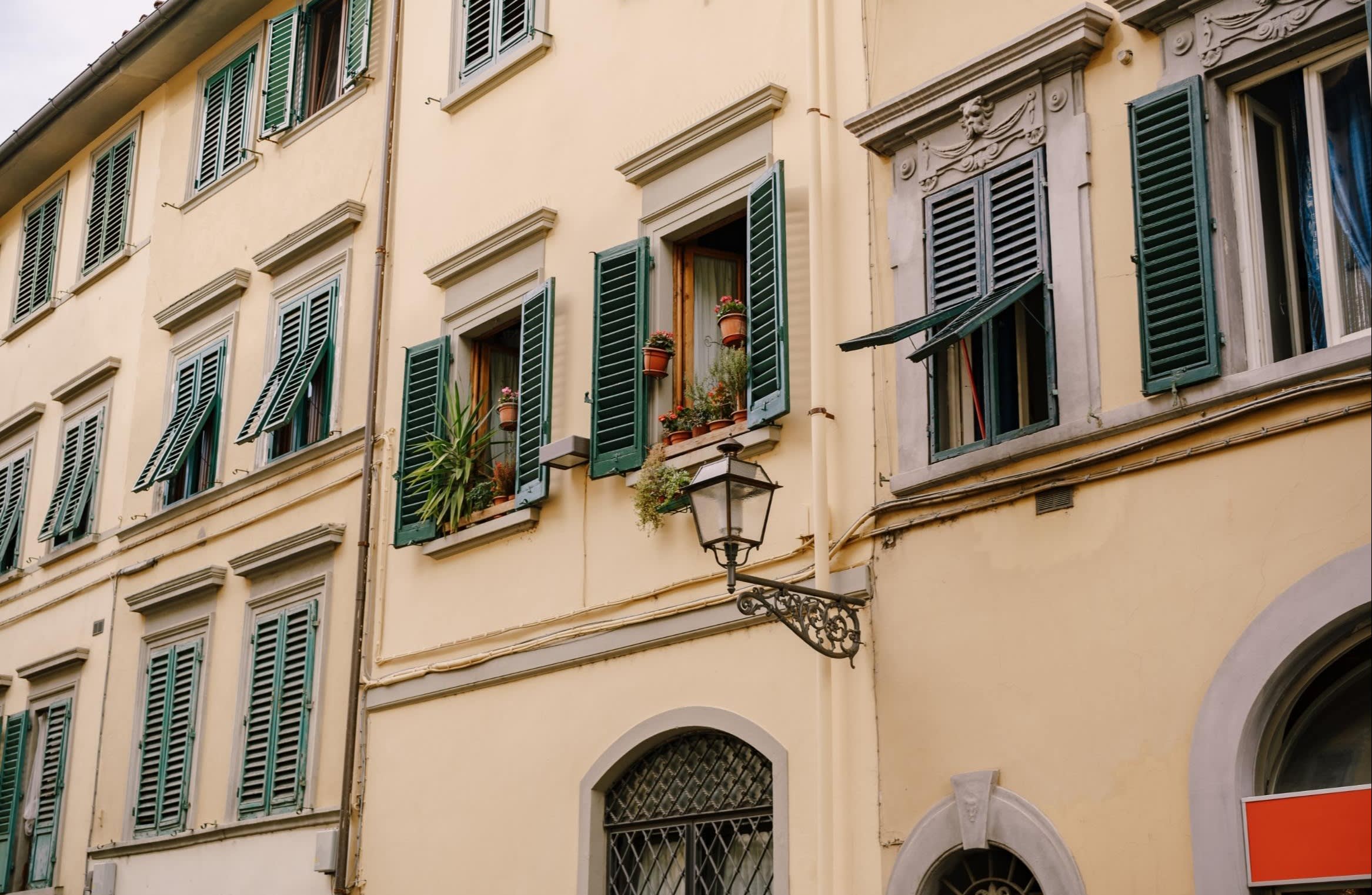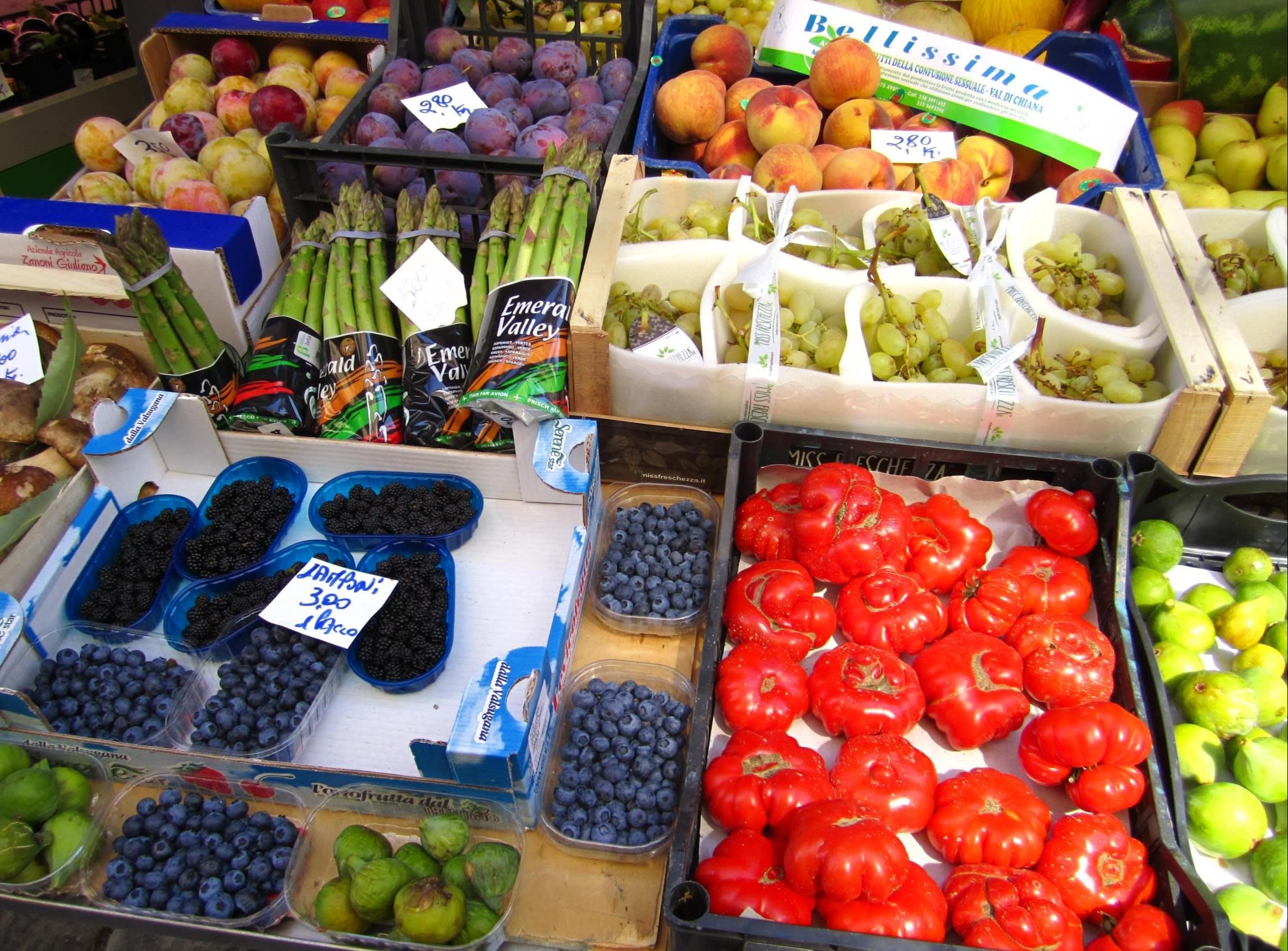Things to know before moving to Florence (2025)
Thinking of moving to Florence, but you're not certain if the city will fit you? Read this article to learn about of Florence, Italy.
Yordan
Florence is the capital city of Tuscany and has a population of almost 400,000. Its larger metropolitan area extends over part of the coastal plain to the west of the hillside.
If you're considering moving to Florence, there are some things you should know about life in Florence first. While it's undoubtedly one of the most beautiful towns in the world and among the best cities in Italy, living in Florence has some challenges too.
In this article we’ll give you information on the following:
- What you should expect from living in Florence
- How to find accommodation in Florence
- The best neighborhoods in Florence
- The cost of living in Florence
- The job market in the Florence
- The higher education options in Florence

What to expect when living in Florence, Italy
Considering Florence’s long history dating back to the 1st century BCE, you shouldn’t be surprised to find out that the city feels like a giant museum. The old infrastructure has limited the expansion of the tram network in the city, but the local officials have made sure that this isn't an issue by setting up a vast bus network that connects the whole of Florence.
The predominantly mild weather and Florence’s small footprint make using public transport optional since mostly everything is within walking distance. Despite being small, however, Florence is always lively, with locals relaxing outside across the many gardens and parks the city has to offer.
As with almost every other city in Italy, you’ll find that there isn’t a shortage of restaurants and bars across Florence. From seafood all the way to mouthwatering pasta variations, you’ll certainly find it hard not to break the bank and dine out every day of the week.
Is Florence suitable for internationals?
You may be wondering how international Florence is. According to one estimate, around 100,000 expats live in Florence. As a result, Florence can be a great place to live if you're looking for an international lifestyle. The city is full of culture and history, and there are plenty of things to do. Plus, it's a great place to learn Italian.
Is Florence safe?
Florence is a safe city and there aren't any areas that you should avoid. As with everywhere else, however, it's always a good idea to be aware of your surroundings and keep an eye on your belongings.
What is the cost of living in Florence, Italy?
The cost of living in Florence is not too high when it comes to basic expenses. Groceries, transportation, and restaurant prices are affordable compared to other major European cities. However, the cost of leisure activities can be expensive for those who like attending concerts or visiting museums on a regular basis.
The cost of renting a flat also varies depending on the area you want to live in, and the type of rental you prefer. You can find affordable rooms for rent in Florence for as low as €595. If you prefer to have your own space, then you can splash out and search for apartments in Florence and spend about €1,700 per month for rent.
All in all, you should be ready to budget around €900 (excluding rent expenses) per month in Florence.
Florence offers several facilities that residents can enjoy for free, including the famous Uffizi Gallery.
Where to shop in Florence if you want to save money?
The best place to find cheap groceries in Florence are supermarkets like COOP (at Piazza Tasso) and SISA (located inside Mercato Centrale), where fresh fruits and vegetables can be found along with other necessities. There're also farmers’ markets, where local residents shop. You'll usually find the best deals here. If shopping at COOP or SISA isn't for you, then try buying groceries at Eurospin (at Piazza Tasso), where many products can be found in bulk and relatively cheap in comparison to supermarkets like Coop and Conad.

How to find accommodation in Florence?
Finding accommodation in Florence can tough, especially if you want to live in the heart of the city.
The average rent of an apartment in Florence is €1,700 according to the HousingAnywhere Rent Index. Deposits in Florence tend to be twice the rent amount. With such high prices, you have to make sure that you’re getting the most of your rental experience.
Here're some tips to save yourself some stress when looking for your new home in Florence:
- Take into account how close the apartment is to things like grocery stores, public transportation, and nightlife
- Make sure you set €50-€100 for utilities every month, unless your utilities are included in your rent in Florence
- If you're not fluent in Italian, make sure that the rental contract is written in English or another language you understand
To avoid being scammed, use reputable websites with verified landlords and tenant protection— like HousingAnywhere!
What are the best neighborhoods for expats in Florence?
Locals consider Oltrarno to be the best neighborhood in Florence. This district is on the south side of the Arno River and is known for its art galleries, antique shops, and restaurants. The best things to do near Piazzale Michelangelo are climbing the hill to take in a view of the city and stopping for gelato.
The Duomo neighborhood is one of the oldest and most historical neighborhoods in Florence. It's located right in the heart of the city, making it a prime spot for tourists and locals alike. The area is home to some of Florence's most famous landmarks, including the Duomo Cathedral and Baptistery.
The San Marco neighborhood has a lot of character. The neighborhood is convenient for shopping and dining, with plenty of restaurants and boutiques within walking distance. However, the San Marco neighborhood can also be quite noisy and crowded, especially in the summer months.
The San Nicolo neighborhood is perfect for those looking for an affordable place to live in Florence. The area has good access to the city center, and there are plenty of amenities around. However, san Nicolo flats can often be quite small, so they may not be suitable for everyone.

The job market in Florence
Florence’s economy depends on manufacturing, publishing and commerce as well as tourism.
There're many English-speaking jobs available in the tourism industry. One thing to keep in mind, however, is that those who only speak English may have a harder time finding jobs outside of this sector.
Many of the English speakers work with large international brands that have their offices in Florence. These businesses are more likely to offer English-speaking jobs due to their need for English communicators roles which may be in public relations, sales, or marketing. As English-speaking jobs abroad become more desirable there’ll be a rise in the demand for English-speaking positions. However, your chances of landing a job would be higher in small and medium-sized companies.
Office clerks, customer service reps, and English teaching jobs are other common positions that english-speakers fill throughout the city of Florence. There're English speakers in Florence who work in the banking and fashion industries as well. Jobs in these fields can be hard to get if English is not your native language.
If you're looking for English teaching jobs, there are positions in the private English academies throughout the city.

What are the universities in Florence?
Studying in Florence has been increasingly popular over the past couple of years. The local universities are growing rapidly, some with plenty of new international students enrolling each year. There's never been a better time to study abroad in Florence.
One of the top universities in Florence is the University of Florence. It's an ancient institution that has been around since 1321! It's a center for research in Italy, offering a wide range of study programs. It also ranks in the top 10 universities in Italy.
Another leading institute for higher education in Florence is the European Institute of Design, commonly called IED. It's a private university where students can study fashion design, interior design, industrial design, and product design.
Florence is also home to Istituto Superiore di Studi Musicali Pareggiato, where students have the opportunity to pursue education in the music field.
Now that you’ve got all the information you need to know before moving to Florence, you’re all set to discover houses to rent in Florence. So what are you waiting for? Get to work and start preparing your checklist for moving to Italy.
This article is for informational purposes only.
Please reach out to content @housinganywhere.com if you have any suggestions or questions about the content on this page. For legal advice or help with specific situations, we recommend you contact the appropriate authorities.
Related articles
In this article
Looking to rent in Florence?
Browse hundreds of rental properties with HousingAnywhere for the smoothest and safest rental experience.
Search Now

